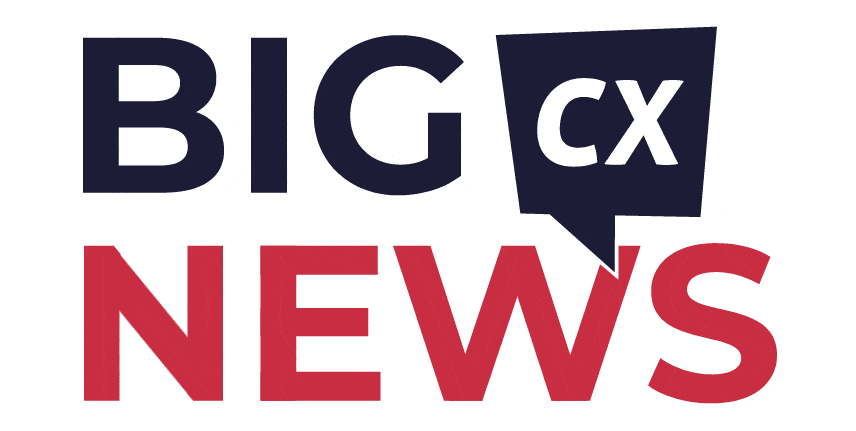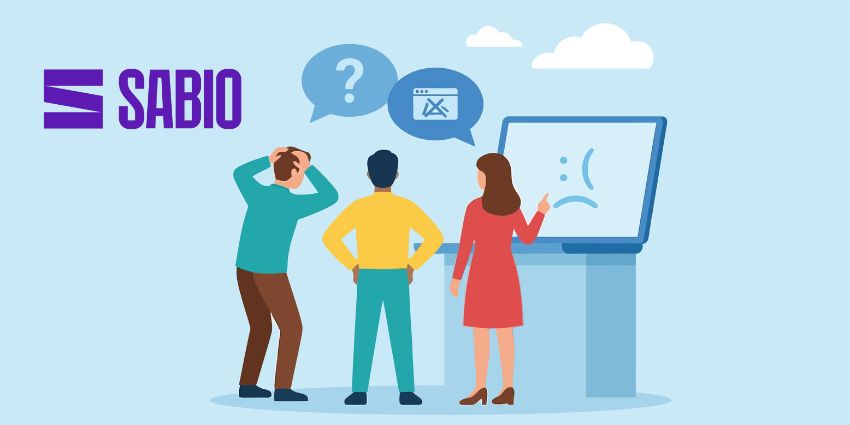This week’s biggest CX news stories include a new contact center platform from Microsoft, a Samsung and AWS collaboration, and a fresh Twilio CCaaS application.
Elsewhere, First Horizon Bank has received backlash for its ‘interesting’ new AI-powered contact center tool.
Here are the extracts from some of our most popular news stories over the last seven days.
Microsoft Releases Its New CCaaS Platform, Aims to Connect the CX Ecosystem
The Microsoft Dynamics 365 Contact Center is now generally available.
First announced on June 4, the CCaaS solution is “copilot-first” and designed to wrap around an organization’s CRM system.
That doesn’t have to be a Dynamics product. Indeed, the offering is CRM-agnostic.
To the CRM, the CCaaS platform adds voice and digital channels, IVR technology from Nuance, unified routing, real-time reporting, and more.
Additionally, sentiment and intent analysis, transcription, and translation tools will help funnel more insight into the CRM, allowing businesses to build a “360-degree view of customers.”
Celebrating the release in a Microsoft blog post, Jeff Comstock, Corporate Vice President of Dynamics 365, wrote:
Organizations will benefit from new native capabilities… built from the ground-up to power mission-critical service operations with extensive scale and reliability on the hyperscale cloud platform of Azure.
Azure will also offer GenAI “from the source”, which may accelerate Microsoft’s CCaaS innovation cycle and allow the tech giant to manage the costs associated with the platform (Read on…).
Samsung Taps AWS for CCaaS, Cites Pricing Clarity as a Core Contract Winner
Samsung has decided to switch up its contact center provider and implement the Amazon Connect platform.
The South Korean tech powerhouse decided to make the change after experiencing issues with its previous hybrid contact center solution. That included incomplete reports, missing metadata, limited AI options for voice, and an inflexible routing platform.
So, Samsung wishes to move further into the cloud and take advantage of new features and the fast pace of CCaaS innovation.
Moreover, for Reuben Lowenstein, Customer Care Manager at Samsung Electronics, the collaboration with AWS is part of the company’s ethos of being always open to new ideas and change. He said:
You want to be ready for whatever comes your way. You have no idea what will be invented in an attic room somewhere in a few weeks.
Working with prominent BPO Teleperformance, Samsung selected AWS due, in part, to its flexible pricing model
As part of the selection process, Samsung explored three possible CCaaS providers. However, it was unimpressed by some of the vendors’ traditional pricing models due to the lack of transparency on the link between delivered functionality and costs (Read on…).
Twilio Announces a Mobile App for CCaaS, “Personalized IVR”, & More
Twilio has announced a mobile app for Flex – its CCaaS platform – as one of several significant announcements within its Q2 2024 release.
The Flex Mobile app is pre-built for iOS and Android, requiring zero developer effort to deploy.
Indeed, users may access all the information and functionality the business has already configured within Twilio Flex.
All they need to do is download Flex Mobile from their app store or Google Play, sign in via the single sign-on, and start engaging in conversations across all digital channels and voice.
Meanwhile, Flex Mobile will work with the same users, phone numbers, routing, queues, and customer data as the desktop version.
Moreover, as Philip Borden, Principal Product Marketing Manager of Twilio Flex, added:
Flex Mobile will also become part of the Flex roadmap. As such, new features available on the Flex product, application, and desktop are now going to be available on tablet and mobile devices.
Now available in a public beta, Flex users can download the app at no additional cost, while additional Flex-only mobile licenses can be purchased at a discounted rate (Read on…).
First Horizon Bank Receives Backlash for “Bleak” Tactic to Tackle Contact Center Burnout
Burnout remains a persistent problem in contact centers. Agents log on, expecting bad calls, and that anticipation causes continuous stress.
Recognizing this issue, Cisco Webex released an Agent Burnout Detection tool to sense high-stress levels and disrupt the cycle with a sixty-second mini-break.
During this mini-break, agents can take some quality “me time”.
According to the vendor, companies trialing the solution saw stress reports decrease by 13-15 percent, average handle time (AHT) increase by 40-50 percent less than it would have otherwise, and customer satisfaction improve.
So far, so good. But, when piloting the Agent Burnout Detection tool, First Horizon Bank received some criticism on social media.
As part of its pilot, the bank decided to present agents with a montage of family photos alongside their favorite songs during these mini-breaks.
Well-meaning, perhaps? Yet, commentators on social media have labeled the deployment as “bleak”, “grim”, and a “Black Mirror plot” (Read on…).







